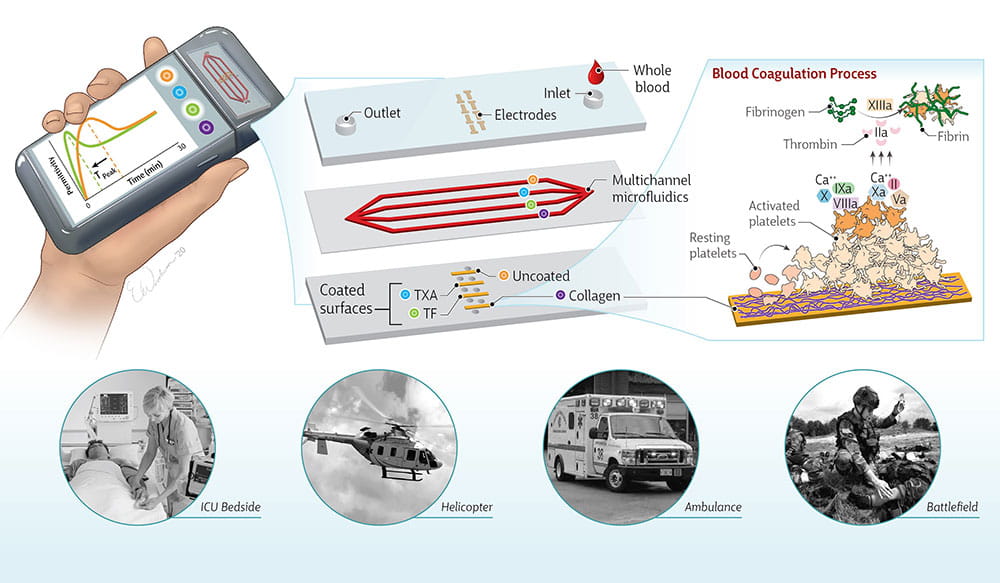Research Areas
CRISPR Editing for Sickle Cell Disease
The research team at UH Rainbow is working with industry sponsors and experts to provide ground-breaking care for sickle cell patients. CRISPR technology is being used to modify patient cells, prior to infusing them back into the patient’s body. The modification of the patients own cells and infusion under the current research protocols has to potential to provide a one-time durable treatment option for patients who up until now were limited on treatment options. This technology is the first of its kind at UH Rainbow Babies and Children’s.
Hemostasis & Thrombosis
Sanjay Ahuja, MD, in addition to collaborators from University Hospitals / Case Western Reserve University, and the University of Pittsburgh, received a $4.8 million dollar grant from U.S. Department of Defense to develop and validate a multichannel, handheld blood coagulation analyzer for early, rapid and comprehensive assessment of trauma-induced coagulopathy (TIC), a condition most often seen in vehicle crash victims and battlefield injuries.
At the center of this grant, is a new device that utilizes previous research called ClotChip, a point-of-care coagulation analyzer developed by engineers from the Electrical, Computer and Systems Engineering Department at Case Western Reserve University. ClotChip requires just a single drop of blood and delivers results in about 15 minutes. The new device in development, dubbed TraumaChek, requires four drops of blood because it has four different channels for analysis, but Dr. Ahuja says he expects it to generate similarly speedy results.
In addition to the DOD grant funded project, ClotChip has led to numerous other research projects and clinical studies, including both healthy individuals and those living with blood disorders. Several studies involving ClotChip are currently active at UH Rainbow Babies and Children’s, with several others being planned to activate within the next two years.

New Tool Being Tested at UH to Help Boost Trauma Survival
Device supported by $4.8 million DOD grant expected to save lives from trauma-induced coagulopathy.


